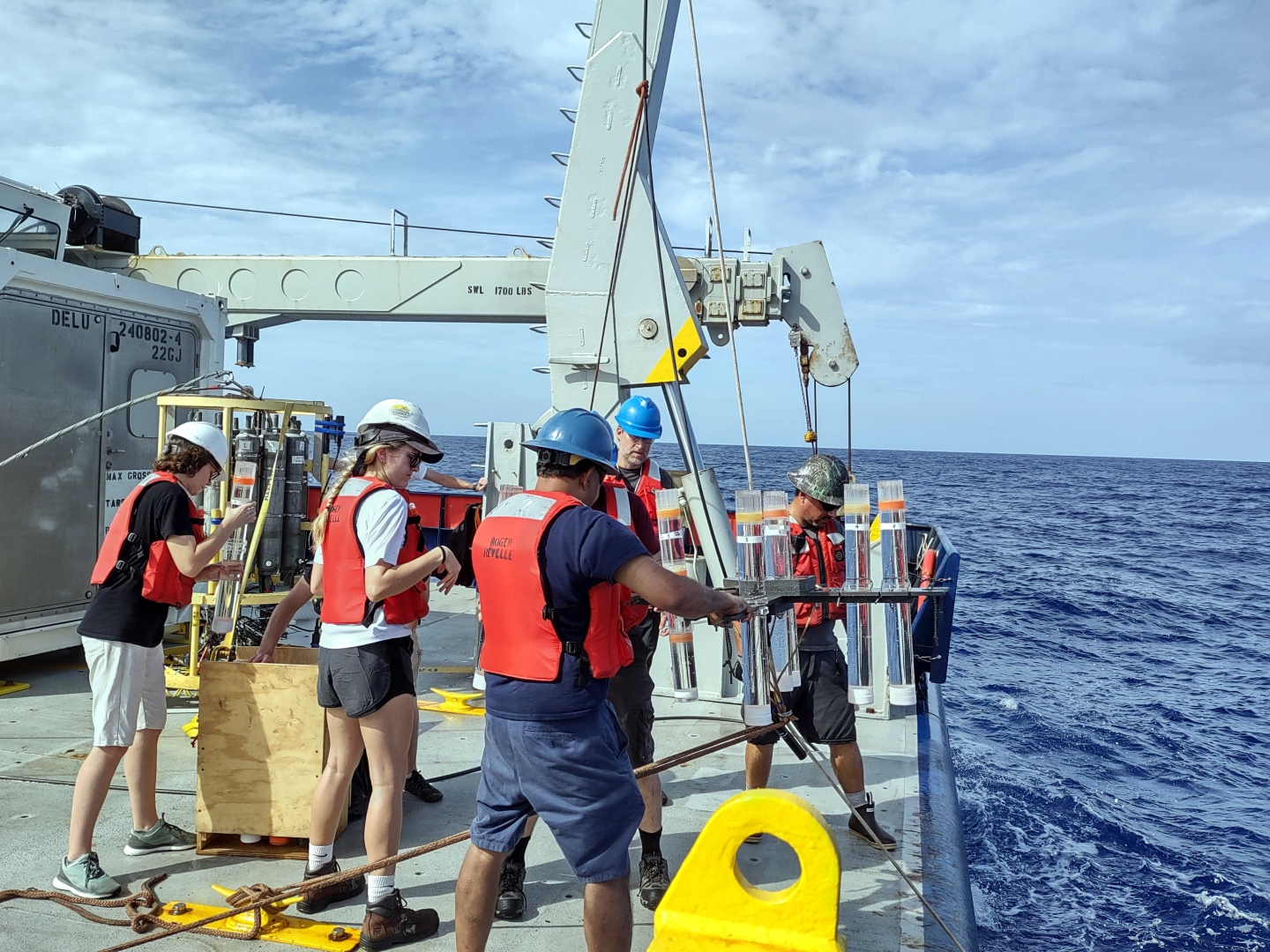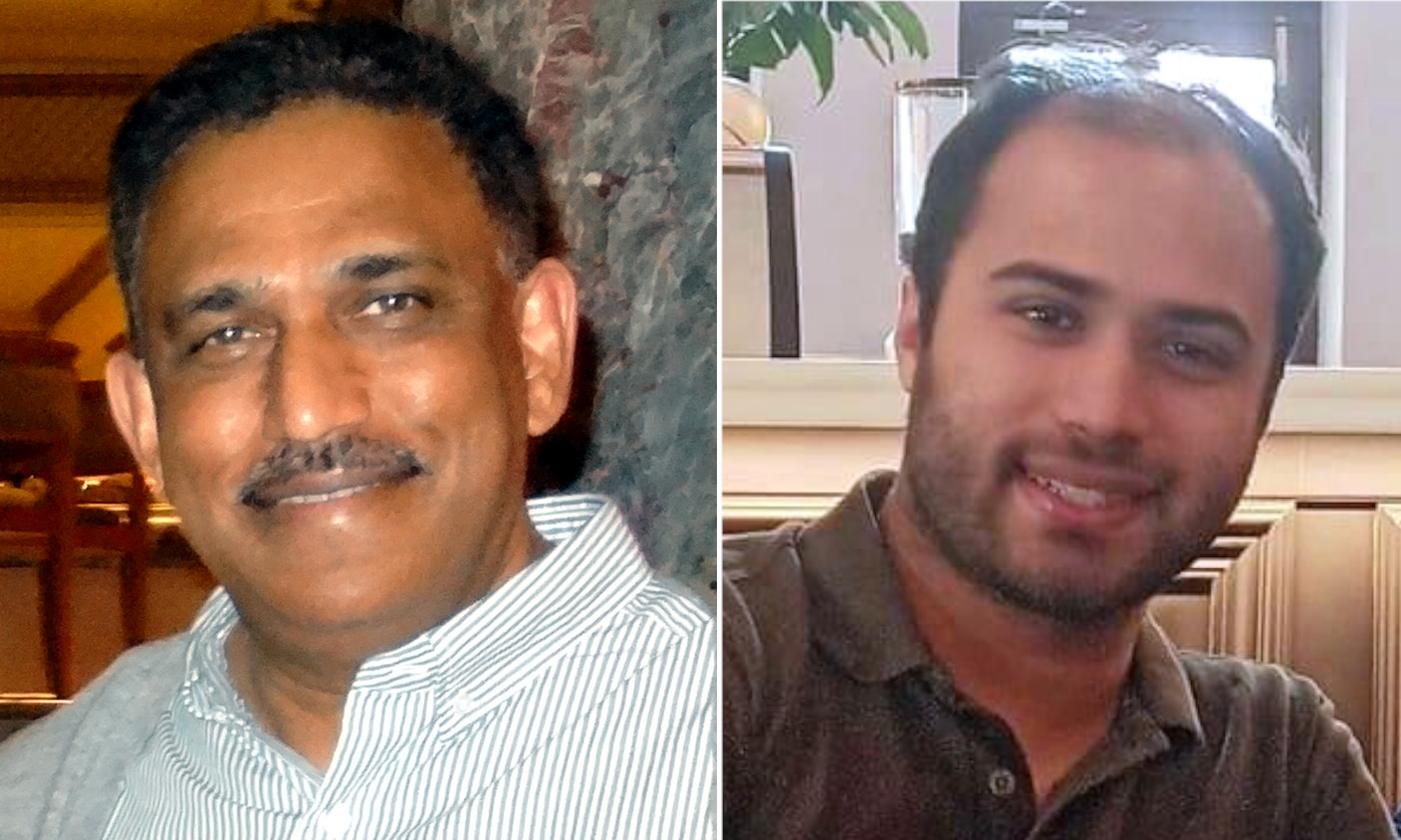
A file photo of Prof. Joaquim Goes and his team conducting research in the Arabian Sea.
PANAJI
A Goan scientist and a research student are among an elite group of scientists from India and USA on board a US research vessel, as part of an Indo-US study on “Enhancing Knowledge of the Arabian Sea marine environment through Science and Advanced Training (EKAMSAT).
Goan scientist, Prof Joaquim I Goes, and research student, Rohan Menezes, will join the US Research Vessel ‘Roger Revelle’ when it arrives at Mormugao Port on June 6.
Prof Goes and his team will focus on understanding the long-term impacts of the warming trend on the biological productivity of the Arabian Sea and its consequences for regional fisheries.
“The main thrust of the work is to understand how the oceanic and atmospheric processes are changing the Arabian Sea so that monsoon predictions can be improved as our planet warms,” Prof Joaquim Goes told The Goan.
“The Arabian Sea is one of the fastest changing tropical ecosystems on our planet that has suffered a measurable loss of biodiversity as a result of Eurasian warming, spread of hypoxia and ocean acidification.”
A native of Cortalim, Prof Goes studied at Our Lady of Perpetual Succour High School, Cortalim and graduated from Chowgule College, Margao, and Bombay University, before obtaining his PhD from Nagoya University in Japan.
He was a scientist at the National Institute of Oceanography in Goa, and is presently a Professor at Lamont Doherty Earth Observatory at Columbia University in New York City.

Goan scientist Prof. Joaquim Goes (left) and research student, Rohan Menezes (right).
Rohan Menezes hails from Miramar and is presently pursuing his undergraduate studies in Environmental Sciences at Dartmouth College, Massachusetts, USA.
“EKAMSAT is a collaborative Indo-US field campaign funded by the Ministry of Earth Sciences, Government of India and the Office of Naval Research, focused on the acquisition of contemporary oceanographic and atmospheric datasets deemed critical for improving the predictive skills of operational monsoon models under global warming scenarios.”
Prof Goes said these field campaigns will involve three research vessels, two Indian and one US, operating in tandem and data collections will be made using state-of-the art instrumentation and autonomous platforms (eg, Wire Walkers, Gliders, Argo floats) and from existing moorings (eg, RAMA and OMNI) in the Indian Ocean.
“During the cruises, targeted atmospheric and oceanographic measurements will be supplemented with bio-optical and biogeochemical observations to advance understanding the influence of the seasonally evolving mixed layer on biological productivity and fisheries in the northern Arabian Sea,” said Prof Goes.
“The atmospheric and oceanographic datasets acquired during the campaign on board the R/V Roger Revelle will be used primarily to examine how recent changes in the Arabian Sea, SST increases, enhanced stratification, the formation of boundary layers, recurring warm water pool formation off the coast of Kerala and several other changes in oceanographic conditions due to the warming trend are influencing the onset, intensity and length of the monsoon over the Indian subcontinent”, Prof Goes added.